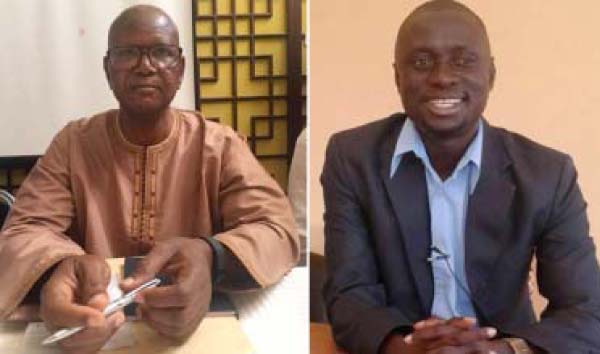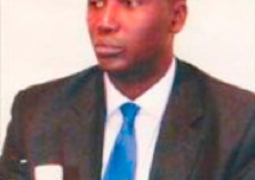
The
Gambia Press Union (GPU) School of Journalism is now ready to continue its
professional journalism education as the school’s curriculum has been reviewed
and validated.
The
revised curriculum was reviewed and validated by editors, media sector
regulators, media policy makers and university journalism lecturers at a
three-day retreat which ended on Sunday at a hotel in Kololi.
Now
instead of the straight two-year advanced diploma in journalism that the school
used to offered, the revised curriculum has been broken down into three levels:
certificate, diploma and advanced diploma.
The
curriculum is now in line with the standards set out in the UNESCO model
curriculum for journalism studies in Africa.
The
revision of the curriculum and the retreat was part of the GPU’s package of the
journalism and media component of a wider governance programme in The Gambia
finance by European Union and being implemented by UNESCO.
Demba
Ali Jawo, the new minister of Information and Communication, said with the new
curriculum, the GPU School of Journalism would offer training programmes that
would make journalists in the country to further contribute meaningfully to the
ongoing national reconciliation and the rebuilding of the nation.
A
veteran journalist himself, Mr Jawo said his ministry would continue to render
support to efforts aimed at capacity building of journalists in the country.
“This
new government has given firm commitment to uphold freedom of the press and
freedom of expression which of course must be guided by the tenets of journalism
and ethical considerations and that is where the need for a well trained media
corps comes in,” he said.
Sasha
Rubel Diamanka from the UNESCO Dakar office said the Gambia’s transition and
growth would surely rely in an engaged and independent press.
“In
this regard, UNESCO looks forward to accompanying the Ministry of Information
and Communication and The Gambia in fostering of a dynamic and independent
media landscape,” she said.
As
the UN agency with a specific mandate to foster freedom of expression and its
corollaries, press freedom and freedom of information, UNESCO sees the right to
free expression as crucial foundations of democracy, development and dialoque
and a preconditions for protecting and promoting all other human rights.
Sang
Mendy, coordinator of the GPU School of Journalism, said five years ago, the
GPU hired an expert from Denmark to develop a curriculum for the teaching of
journalism in The Gambia; there was none in the country then.
“The
curriculum developed was rich in content as it covered relevant things that a
journalist should know,” he said.“This way, when it was presented before the
National Accreditation and Quality Assurance Authority (NAQAA), they accepted
it as a guide to teach journalism in The Gambia.”
The
curriculum that was developed was meant to for two- year advanced diploma
programme in journalism.
“This
though does not give students the chance to choose the level they want to study
depending on their pocket and qualification and experience; everyone was compelled
to enrol for a 2-year education to bag an advanced diploma,” the journalism
school coordinator said.
“After
a thorough review with stakeholders, there arose the need to divide the
programme into certificate, diploma and advanced diploma. This does not mean the curriculum has been
tampered; all the modules and credit hours have been maintained and distributed
evenly to cater for the different needs per programme.”
After
the curriculum was broken down into three levels, a curriculum review committee
was set up to review the distribution of modules and credit hours as well as
add development issues such as democracy and governance, Civic Education, human
rights, gender, HIV and AIDS, climate change and the environment and
sustainable development in the curriculum.
It
was after the review committee was done with their task that the retreat was
organised to have some of the key stakeholders in journalism education and
development to finally critique it and they eventually validated after a
through look into the nitty-gritty of the curriculum by the experts invited.
The
document after validation would serve as a guiding tool for the teaching
professional journalism in The Gambia.
Read Other Articles In Article (Archive)



